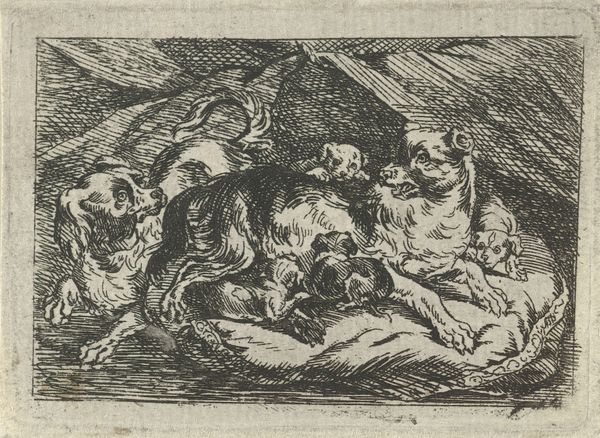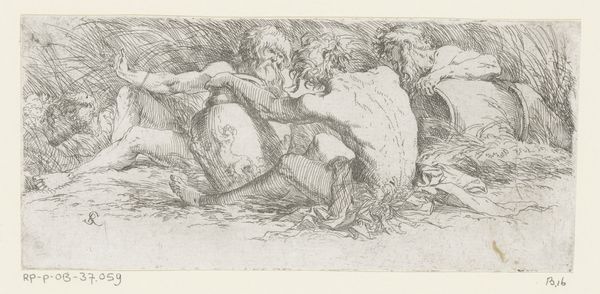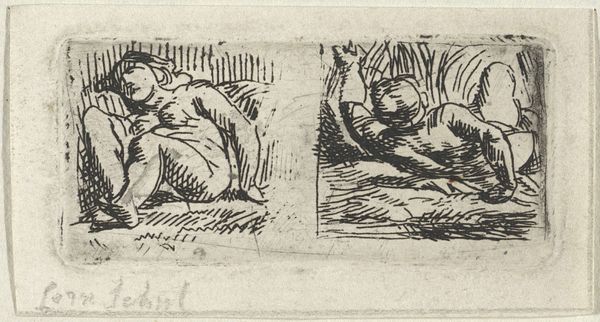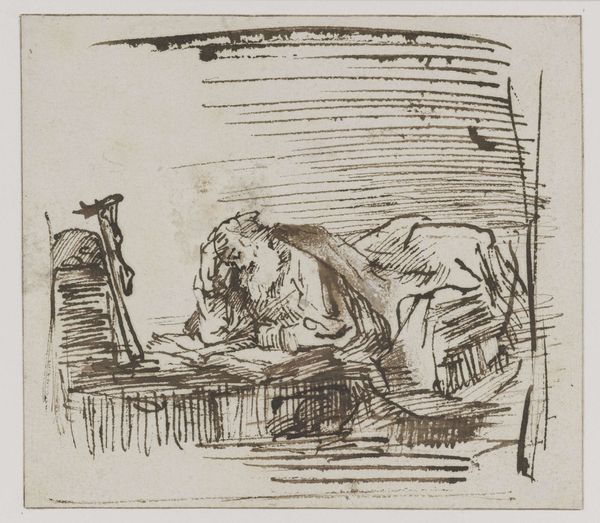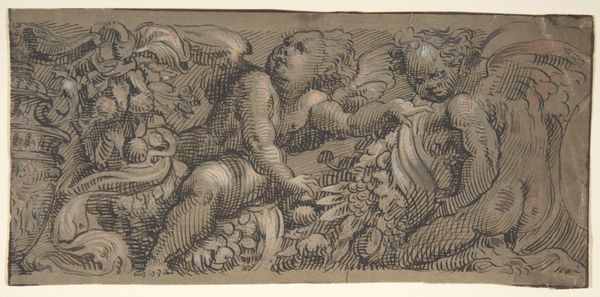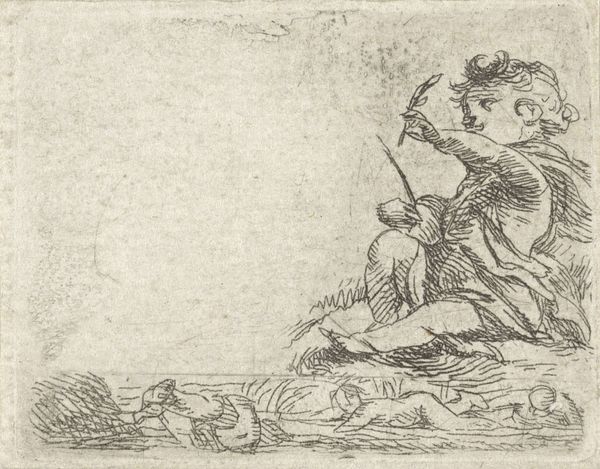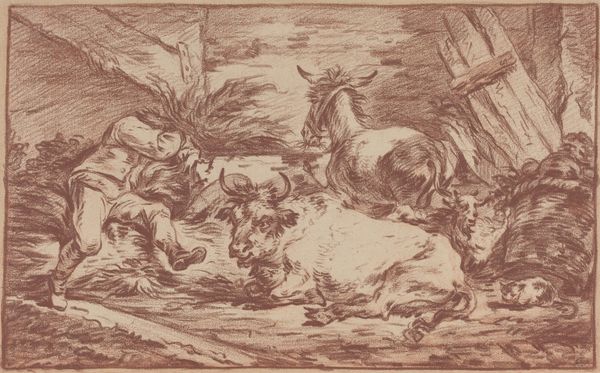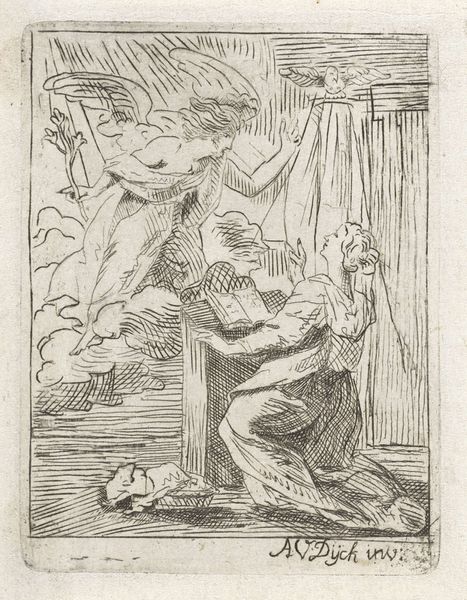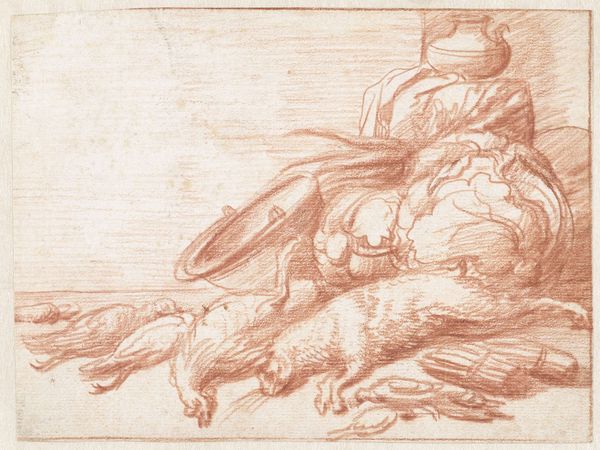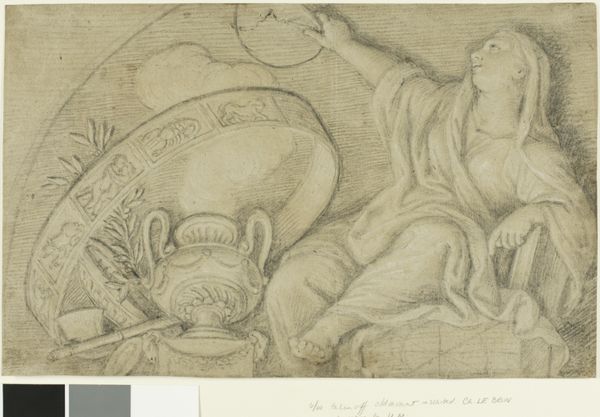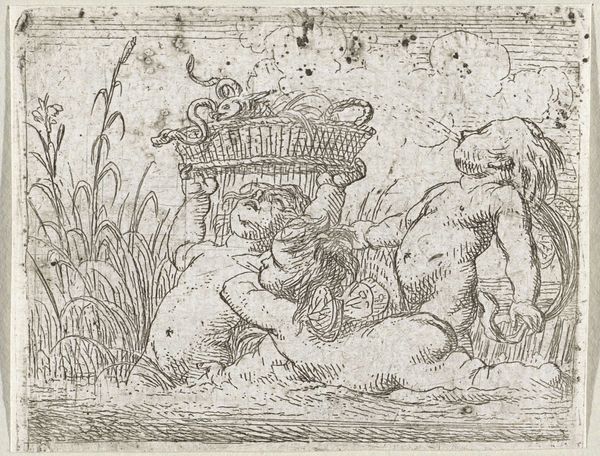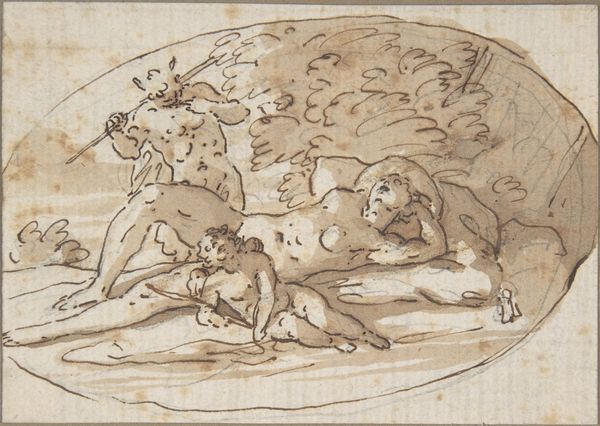
drawing, etching
#
drawing
#
baroque
#
etching
#
figuration
#
child
Dimensions: height 33 mm, width 53 mm
Copyright: Rijks Museum: Open Domain
This tiny etching, 'Child as River God,' was made by Cornelis Schut in the 17th century. It is printed on paper, a readily available material at the time. Schut likely used a metal plate, coated with wax, through which he scratched his design. The plate would then have been submerged in acid, biting the exposed lines, then inked and pressed onto the paper. Look closely and you can see the dense cross-hatching, a technique used to create depth and shadow. Printmaking like this was a reproductive technology. It allowed for the relatively easy dissemination of images. While Schut was clearly a skilled draughtsman, the true labor of this artwork lies in the many, many prints that could be pulled from the single plate. Each impression could carry his vision to a new audience. This makes printmaking a decidedly social and even democratic art form, far removed from unique, hand-painted masterpieces, and it's crucial to understanding the work's original context.
Comments
No comments
Be the first to comment and join the conversation on the ultimate creative platform.

